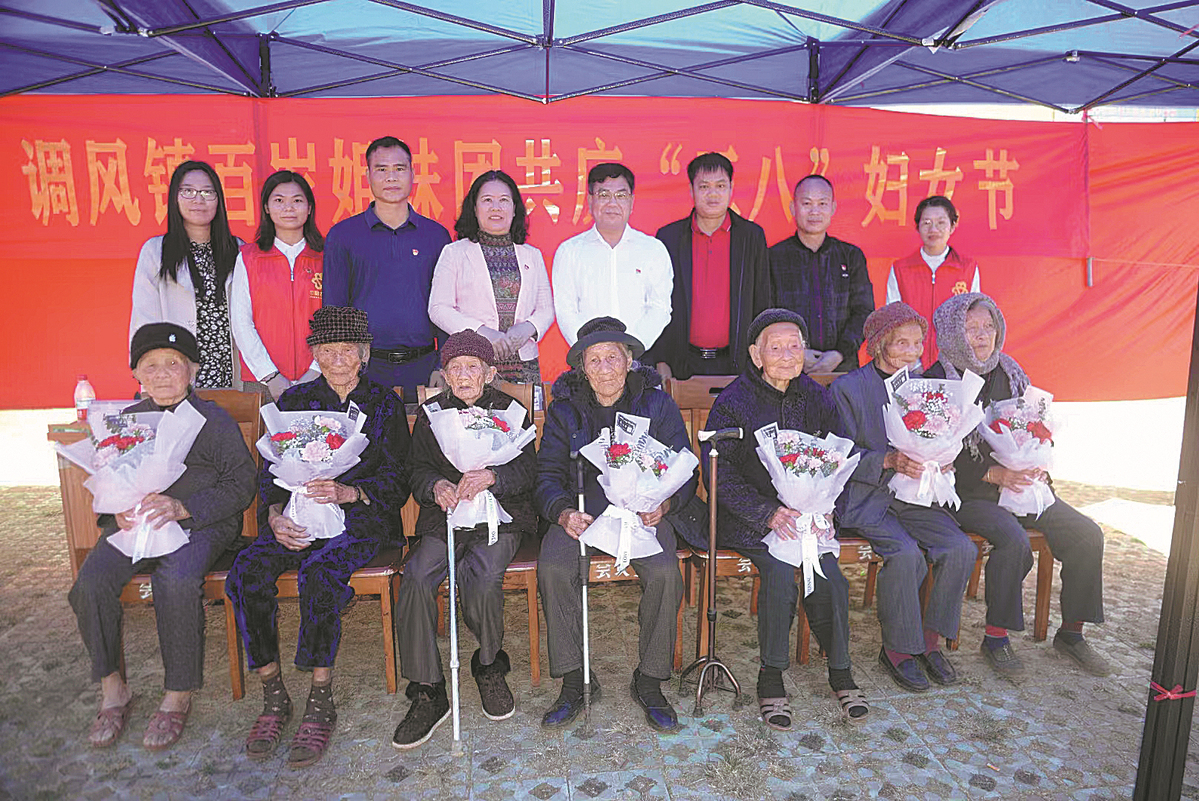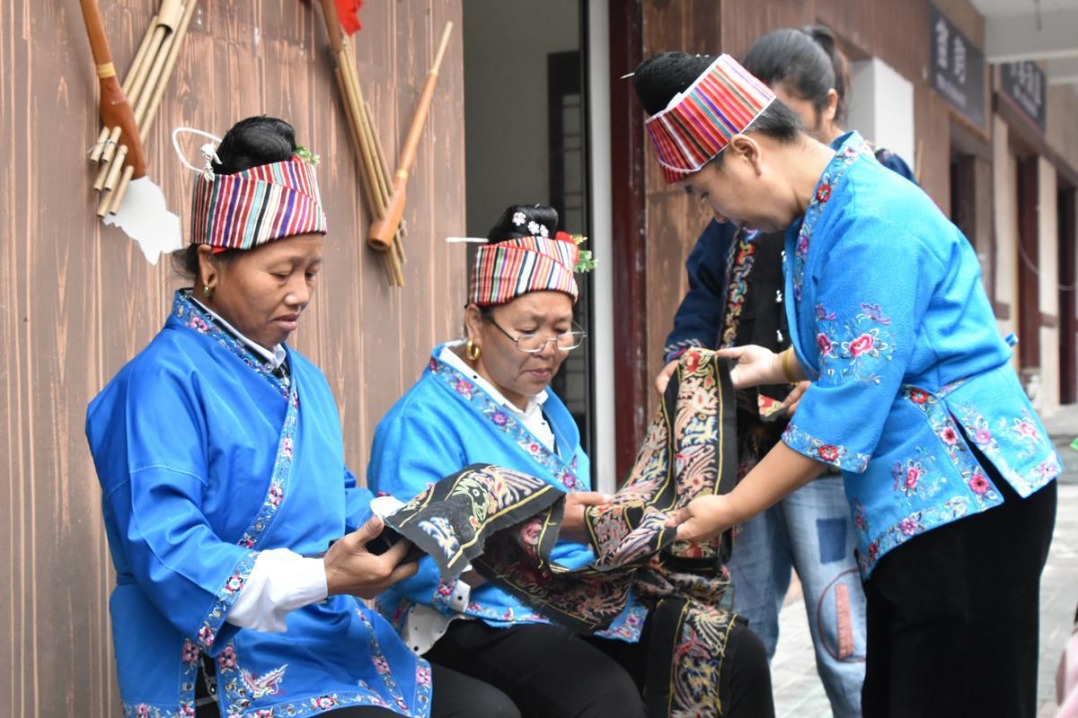Diet, positive attitude are keys to longevity


Tiaofeng township in the coastal city of Zhanjiang, Guangdong province, made a name for itself on the internet recently for its long-lived residents after it was reported that 26 of its 29 centenarians had been vaccinated against the novel coronavirus.
The remaining three were judged physically unfit for the vaccination. Considering the township's permanent population of 50,000, its share of centenarians seems significant.
In the slightly younger bracket, there are 437 Tiaofeng residents aged between 90 and 99. The presence of so many seniors has drawn visitors in search of the town's secret of longevity. Seven men and 22 women are centenarians. Chen Fenglian, who comes from Shuiwei village and is 103 years old, does not eat much and is not choosy about her food, her grandson Zhou Qing told Guangzhou Daily.
As her digestion has weakened with age, she eats less poultry and meat but still eats fish and shrimp from the nearby sea all year round. She showers every day and has a mild temperament.
"Epidemic control is important. We should not lag behind," she said, speaking about the vaccination.
Cao Shi, who comes from Tanyue village and is also 103, asked her 102-year-old friend to get vaccinated with her. Originally from Chikan district, she came to Tanyue after marrying. Four generations later, her family has 32 members.
During the years of grain shortage, she used to eat a lot of fruit, vegetables, fish and shrimp. Now, her children and grandchildren buy fish and shrimp, as well as imported fruit for her sometimes, she said.
Cao gets up at 6 or 7 am and goes to bed at 9 pm. She rarely gets angry.
In general, Tiaofeng's centenarians have three to five children, said Chen Lifei, deputy chief of the township. Though they lived hard lives when they were young and worked as farmers, they generally have a positive attitude toward life, like to eat fish and shrimp, and keep regular hours, Chen Lifei added.
Chen Chenghan, Tiaofeng Party secretary, also attributed their wellbeing to the natural and cultural environment.
Although it is located on the tropical Leizhou Peninsula, which suffers from drought occasionally, Tiaofeng itself gets ample rainfall thanks to its combination of hills and monsoons, and according to Chen Chenghan, its lush vegetation and abundant sunshine generate a lot of oxygen.
The nearby Qingtong estuary abounds in mangroves, which are home to 1 million egrets. To the south of the township, a dry, volcanic lake landform that lies below sea level has slightly higher air pressure and is rich in oxygen.
The bay and islands off the coast are free from industrial pollution and are popular fishing sites.
The area's red soil is perfect for crops, such as sugar cane, pineapple and banana, which need fewer chemical fertilizers, and abundant rainfall results in high-quality drinking water. The township also has a centuries-old cultural tradition of emphasizing education and virtues like filial piety and thrift, Chen Chenghan said.
- Employee sorry for leaking pop star's rehearsal clips
- Shanghai ready for 2025 version of E-sports Masters
- New 'eco-police' system to be set up by 2027
- Hebei cooperative's cabbage proving a hit across China
- Kunming rail accident spurs safety overhaul nationwide
- Embroidery proving major draw at bustling Guizhou market





































